Vision
We always consider the natural environment and the global environment, and contribute to the realization of a decarbonized society and resource-recycling society.
Non-Financial KPI
The Seibu Group sets non-financial KPIs for each materiality (important theme).
For details, please click here.
The Seibu Group's Environmental Policy
The Seibu Group formulated an environmental policy for the purpose of facilitating the efforts of each group company to realize the Group Vision and contributing to solving major issues facing society. To tackle those issues, the Group is promoting proactive, concrete and organized initiatives.
Click here for details.
The Seibu Group’s Nature Positive Declaration
The Seibu Group has formulated the Nature Positive Declaration to achieve the 2050 vision of the Kunming-Montreal Global biodiversity framework, “A World in Harmony with Nature.” For more information, please see here.
Seibu Group's vision for society in 2050
We will make unified efforts to actively promote adequate measures for the “reduction of energy consumption,” “energy transition,” and “absorption of CO2 emitted” to achieve those targets and cope with associated climate change risks and opportunities.
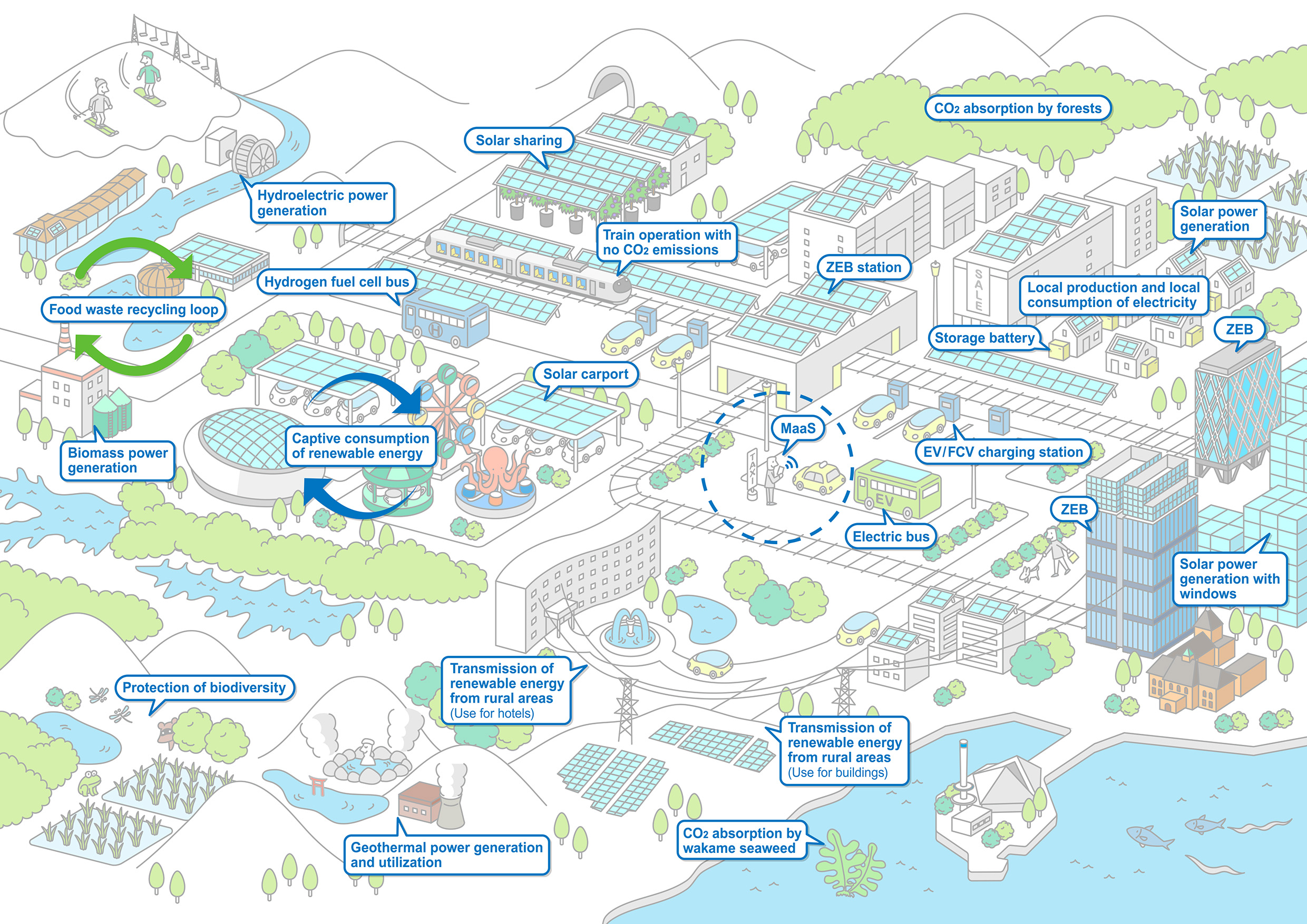
Internal Carbon Pricing System
We have introduced the Internal Carbon Pricing System to strongly advance our response to climate change. We apply an internal carbon price (7,000 yen/t-CO2) to some capital investments that can reduce CO2 emissions to aid investment decisions.
Seibu Group environmental database
In addition to CO2 emissions, water use, resource used, industrial waste, food waste, chemical substances handled, and emissions of air pollutants are compiled in the Seibu Group Environmental Data.
Click here for details.
Seibu Group Non-Financial Database
Disclosure based on TCFD recommendations
In fiscal year 2021, we endorsed the recommendations of the Task Force on Climate-related Financial Disclosures (TCFD) and participated in TCFD Consortium. Based on the recommendations, we are actively disclosing information about both business risks and opportunities posed by climate change from the perspectives of strategy and risk management.
For disclosures based on TCFD recommendations, please see below.
Disclosure based on TNFD recommendations
In fiscal year 2024, we endorsed the disclosure recommendations published in September 2023 by Taskforce on Nature-related Financial Disclosures (TNFD) and registered as a TNFD Adopter to adopt the recommendations. We also participate in the TNFD Forum. In addition to climate change, we also recognize the seriousness of nature-related risks, and we are taking measures to address these risks while promoting initiatives to take advantage of related opportunities.
For disclosures based on TCFD recommendations, please see below.
Introduction of the activities of each group company
Greenhouse gas reduction
Adopting energy-saving trains and equipment
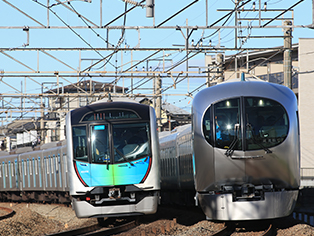
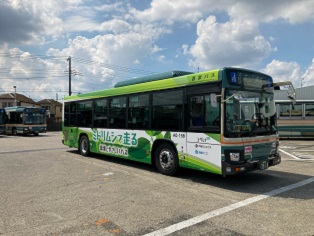
All the Group's transportation companies aim to reduce their environmental impact by improving transportation efficiency. To that end, they have been upgrading to energy-saving rail cars and installing energy-efficient facilities at train stations and will continue to carry out research on train, bus, and taxi driving technologies in an effort to cut down on energy consumption.
Utilizing renewable energy
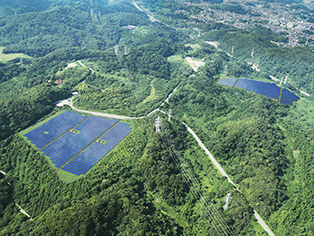
Each group company is working to curb greenhouse gas emissions, reducing energy consumption by using renewable energy sources such as solar power and geothermal heat pumps for heating and cooling system.
- The Seibu Group operating nine solar power plants nationwide that generate about 27,000MWh annually.
- The Seibu Group Operating a hydroelectric plant in the city of Karuizawa that generates 1.48 million kilowatts annually.
- Hakone Yunohana Prince Hotel uses green energy for heating/cooling and hot water supply by utilizing hot spring heat, and will introduce a binary power generation system in May 2023 to provide approximately 20% of the electricity used (annual CO2▲ approximately 187 tons).
- Operating air-conditioning systems using geothermal energy at the Hakone Yunohana Prince Hotel and Manza Prince Hotel, reducing CO2 emissions by 2,470 tonnes annually.
- Seibu Holdings' headquarters building, DaiyaGate Ikebkuro, uses electricity generated by Seibu Takeyama Solar Power Station, a solar facility operated by The Seibu Group, aiming to achieve virtually zero CO2 emissions from the annual electricity of approx. 2,270 tons used at the headquarters building.
- Yokohama Hakkeijima Sea Paradise has realized a virtually zero CO2 emission aquarium by replacing all electricity used in the aquarium area with "Hamakko Electricity," a real zero CO2 emission electricity derived from renewable energy.
- Tokyo Garden Terrace Kioicho achieved zero CO2 emissions by replacing all electricity with 100% renewable energy electricity.
- Prince Shopping Plaza introduced On-site PPA at Prince Shopping Plaza in Karuizawa to generate solar power (annual CO2 emissions: approx.▲ 870 tons)
- Seibu Bus Niiza Office introduced On-site PPA at Seibu Bus Niiza Office and use of electricity with environmental value generated at Seibu Takeyama Solar Power Station operated by The Seibu Group, to achieve virtually zero CO2 emissions (annual CO2 emissions: ▲80 tons).
- Introduced renewable energy-derived electricity at 45 hotel and leisure facilities owned by Seibu Real Estate.
- The Saitama Seibu Lions effectively reduced approximately 800 tons of CO2 emissions to zero and converted the electricity used at Belluna Dome to renewable energy.
Click here for renewable energy from the Seibu Group (in Japanese only).
Energy conservation in real estate facilities
The Group companies have been making buildings more energy efficient by installing various types of equipment, including highly efficient heating systems and LED lighting. Newly constructed office buildings are designed with the latest energy-conserving technologies.
Click here for awards and certifications.
Other Initiatives to Reduce Greenhouse Gas Emissions
- Prince Hotels received the Japan Hotel Association's "Social Contribution Award" for the establishment of a joint delivery system at eight hotels in Tokyo (a system in which each supplier delivers food products to a warehouse designated by Prince Hotel, and each hotel only takes food products it needs from the warehouse.
- Seibu Lions introduced carbon offset LP gas.
Waste reduction
Reducing waste from operations
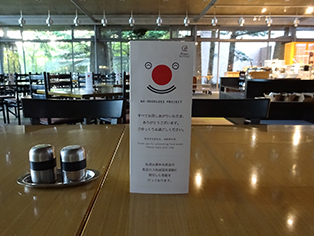
The Group companies have been carrying out various initiatives for minimizing trash and controlling waste, such as promoting a shift to paperless operations by using information and communications technology (ICT) to reduce waste at offices and workplaces. Moreover, Prince Hotels has been taking steps to reduce the use of plastics and to reduce, process, and recycle food waste at hotels.
- Prince Hotel has implemented initiatives to reduce waste, including food and plastics.
- The original natural mineral water supplied in guestrooms has been changed to label-less and 100% recycled PET bottles, and horizontal recycling* has begun.
*Recycling system that recycles PET bottles and uses them again as PET bottles.
Seibu Prince Hotels Worldwide received the Award for Excellence in Social Contribution from Japan Hotel Association in recognition of their efforts to reduce plastic waste. - A restaurant at KARUIZAWA PRINCE HOTEL WEST carried out demand forecasting to reduce food loss based on camera images, etc. (demonstration experiment)
- Launched “Shina Loop,” an initiative at Shinagawa Prince Hotel aimed at sustainable recycling that converts food loss resources into fertilizer.
"Loss to Value" Initiative

Seibu Holdings is promoting a Loss to Value project that takes a broad, multifaceted approach to devising and implementing solutions through an open platform.
For more information, please click here.
Promoting recycling and reuse
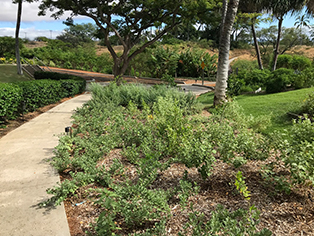
Seibu Railway and Seibu Bus have been supplying other companies with decommissioned trains, used buses, and usable equipment to ensure their reuse and reduce the environmental burden related to their dismantling and disposal. The Group companies also make use of wood from thinning the forests that they manage. (Wooden train station benches: Seibu Forest in the city of Hanno)
- Seibu Railway and hotels in Hawaii used wood from forest thinning to make benches and wood chips.
- Seibu Railway installed wall artwork in the restrooms of the new station building at Toshimaen Station, using lumber from Toshimaen Amusement Park.
- Seibu Landscape reuses soil from a water treatment plant (previously used to purify industrial wastewater) as soil for growing plants and trees at a facility in the city of Otsu, Shiga prefecture.
- Prince Hotels implemented “Veggie-cycle”, the food recycle system to compost food waste from hotel and provide to contract farms. Several hotels will purchase vegetables produced by these farms.
- Prince Hotel Linen Supply makes pillowcases and microfiber towels, etc. using linen fabrics recycled from waste material.
Ensuring water supply
Measures to reduce water consumption
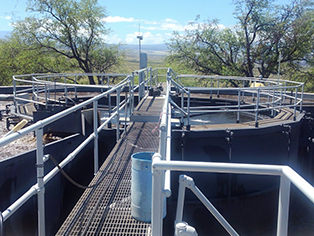
To help conserve precious water resources, the Group companies have formulated policies to curb water consumption and installed equipment to reuse rain and wastewater.
- The Seibu Group utilizes well water, drainage water and rainwater.
- Seibu Bus uses bus washer that consumes less water than previous one.
- Prince Hotels in Hawaii, reuses sewage water as irrigation water after purifying it at wastewater treatment plants.
Implementing measures for securing clean water supply
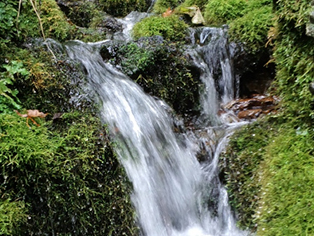
The Group is actively involved in preventing water pollution. For example, Prince Hotels donates to regions, where the drinking water sources are located, to help them maintain good water quality. Also, SEIBU Landscape Co. and other subsidiaries are taking various measures to prevent water pollution as follows.
- Prince Hotels donates one yen for every bottle of local spring water sold to the city of Minami-Uonuma, Niigata prefecture.
- Seibu Landscape uses baking soda instead of herbicides to prevent the pollution of headwater and river.
Protecting forest and species
Activities to protect and increase forests and plant species and to increase green spaces
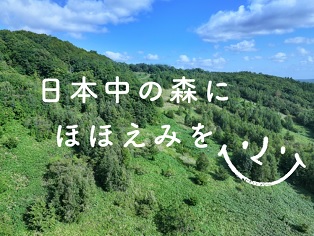
Seibu Group companies have been cooperating with the municipalities where they operate to protect and increase forests, plant species, and green spaces, making proactive efforts to conserve forests themselves.
- Hanno / Seibu no Mori forest and Hikari no Mori Tokyo Garden Terrace Kioicho were certified as natural symbiosis site sponsored by the Ministry of Environment.
- Seibu Railway offers forests in Sayama Hill (Mikajima area, Tokorozawa City) with an unspoiled woodland landscape to the Totoro no Furusato Foundation as a contribution to ongoing environmental conservation.
- The Seibu Group maintains lush green spaces at Tokyo Garden Terrace Kioicho, certified as an "urban oasis" under SEGES in 2016.
- Seibu Lions established the "Saitama Seibu Lions Award" in Saitama Prefecture's "Sai-no-kuni Green Essay/Painting Contest" for children to raise awareness of forest protection.
- The Forest Preservation Project will begin in earnest, and 18 districts nationwide will become "Seibu no mori“.
Click here for the “Seibu no mori” website.
Seibu Landscape's initiatives
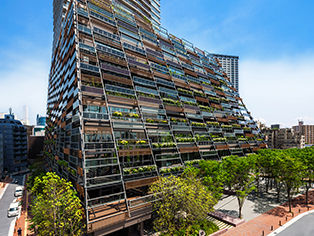
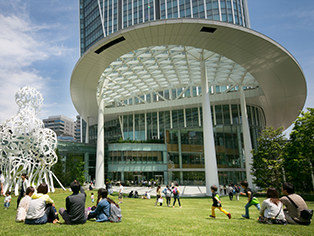
Seibu Landscape surveys, designs, builds and maintains green spaces across Japan as a service provider that brings people and nature together. It also manages and maintains city parks, develops green wall technology, and provides environmental education programs to promote awareness of the importance of nature. Seibu Landscape also collaborates with community-based organizations and engages in local initiatives with Seibu Green Management, and Yokohama-Ryokuchi.
- Develop and promote specialized greenery technology for green walls and rooftops.
- Reating greenspace through our landscaping work. (Planted over 10,000 large trees, 170,000 shrubs, 360,000 ground cover plants and 30,000㎡ of lawn, annually)
- Managed and maintained city parks.
- Conducted environmental education programs at city parks.
- Surveys and planning(consulting)to draw out the potential value and attractiveness of green spaces.
Initiating measures for protecting biodiversity
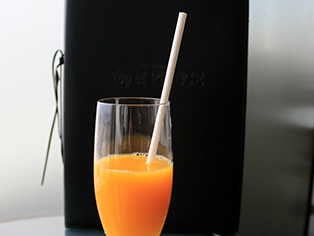
The Seibu Group is engaged in various initiatives focused on protecting biodiversity and has signed onto the Declaration of Biodiversity by Keidanren (Japan Business Federation). The Group companies have been taking steps to reduce plastic waste due to its harmful effects on marine life and ecosystems. For example, they have banned plastic straws on their premises and are progressively shifting to paper straws. Disposable plastic bags have also been discontinued and we propose non-use of amenities in guestrooms at Prince Hotel.
The Seibu Group has hotel facilities in national parks across Japan, such as Fuji-Hakone-Izu National Park and Joshin’etsukogen National Park.
In 2018, the Group concluded a partnership contract with the Ministry of the Environment in the National Park Official Partnership Program. That has further promoted our engagement in business activities that take into consideration regional vitalization and nature/biodiversity environmental protection. In Furano, we also offer a former golf course to NPOs for tree-planting activities aiming to give back to nature.
At Tokyo Garden Terrace Kioicho we preserved and transplanted about 200 trees which had been planted on the site during the period of the former Grand Prince Hotel Akasaka. We planted 340 new trees (over 3m) to form green urban spaces from the beginning of the building completion. Additionally, by planting more than 200 species of plants, the green area ratio for the site is approximately 45%. We aim to develop a community that will contribute to building an ecological network (green corridor) aligning with valuable urban green spaces in the Imperial Palace and Akasaka Goyochi Palace grounds, etc. At the center of the site, there is a road surrounded by greenery which we call a "green axis" that runs from the adjacent Benkei moat to Shimizudani Park. We also create a biotope in the area called “Forest of Lights” in the north side of the site.
In addition, each group company is taking various initiatives to preserve biodiversity.
- Yokohama Hakkeijima and Taiwan Yokohama Hakkeijima breed rare species and rescue and conserve injured wildlife.
- Seibu Petcare regularly holds pet (cat and dog) adoption events at PET-SPA stores and Group facilities.
- Participation in the 30by30 Alliance for Biodiversity sponsored by the Ministry of the Environment.
Other
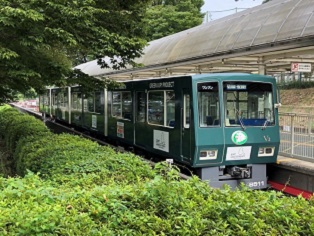
Seibu operates trains named "SDGs X Lions GREEN UP! Project Train" for the purpose of delivering our message of our Sustainability Action initiatives externally.


 Promoting Diversity
Promoting Diversity SEIBU
SEIBU